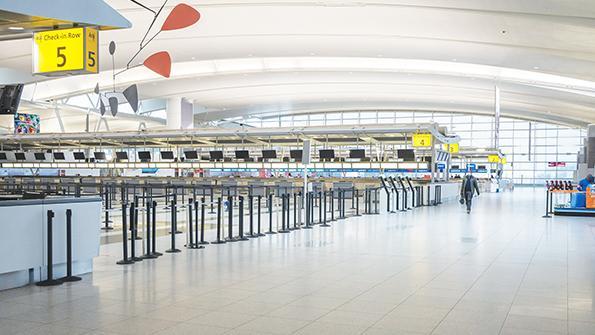A Poorer And Smaller Reshaped Airline Industry | エアライン業界はより貧乏で小さなものに

IATA事務局長兼CEO・ Alexandre de Juniac氏は、2020年末に向けて揺れ動く世界のエアライン業界が置かれている現状を次のようにまとめた:「数字がこれ以上悪くなることはない」。これは11月に開催された、IATA初のオンラインイベント「IATA AGM」の場で発せられた言葉だ。もちろん、新型コロナウィルスによる世界規模の国境閉鎖と隔離政策により、航空会社の首脳ですら集まることができなくなったことが、初のオンライン開催の理由だ。
実際のところ、2020年1月まで高度成長モードにあり、10年に渡って利益を生み出し続けていた業界にとって、この数字は理解不能といっても過言ではない。この衝撃的な運気の逆転により、IATAはエアライン業界が2020年に1,185億ドルの純損失を計上し、2021年には改善するとはいえ、それでも387億ドルという壊滅的な損失を計上することになるとみている。
世界全体で2021年の旅客数は28億人に増加するとIATAは予想しているが、それでも2019年の実績を17億人下回る。また、イールドは横ばい、ロードファクターは72.7%になると予想しており、2020年の65.5%よりは改善するが、2019年に記録した82.5%を大きく下回る。
「2021年の旅行件数は2020年の低迷期と比較して50%増加、2022年にはさらに大幅に増加して、2023/24年に以前の水準への回復に向かう。各国政府は慎重な姿勢を崩さないと思われ、回復には時間がかかるだろう。ワクチンの他にも効果的な検査体制が必要であり、経済危機と健康危機の傷跡は残ることになるだろう」と語るのは、IATAのチーフエコノミスト・Brian Pearce氏だ。
全ての航空会社にとって、2021年の最重要課題は現金を燃やすのをやめることだ。
「“Cash is King”だ。現金が生死を分け、その半分の収入があれば、非常に大きなコスト削減にもつながる。今日のあらゆるビジネスにおいて、重要なのは損益ではなく、現金だ」と同氏は話す。
2021年以降は、業界再編がさらに進むことになるだろう。
「私は航空会社の失敗や買収を通じて業界再編が進むとみているが、政府の関与が物事を複雑にする。いくつかの政府は航空会社の消滅を望んでおらず、税金を投入しているからだ」とPearce氏は述べた。
Aviation Week Intelligence Network (AWIN) のメンバーシップにご登録いただくと、開発プログラムやフリートの情報、会社や連絡先データベースへのアクセスが可能になり、新たなビジネスの発見やマーケット動向を把握することができます。貴社向けにカスタマイズされた製品デモをリクエスト。
In six words, IATA director general and CEO Alexandre de Juniac summed up the state of the global airline industry as it lurched toward the end of 2020. “The numbers couldn’t get much worse,” he said at the IATA AGM in late November, the organization’s first-ever virtual event because, cruelly, the COVID-19 virus and global border closures and quarantines prevented even airline leaders from convening for real.
Indeed, the numbers are almost incomprehensible for an industry that until January 2020 was in high growth mode and had been consistently profitable as a collective for 10 years. In a staggering reversal of fortune, IATA expects the industry to post a net loss of $118.5 billion for 2020 and for the net loss in 2021 to be an improved but still devastating $38.7 billion.
Globally, IATA expects that 2021 passenger numbers will grow to 2.8 billion in 2021, which will still be 1.7 billion travelers short of 2019 performance. Passenger yields are expected to be flat and the load factor is expected to grow to 72.7%, an improvement on the 65.5% expected for 2020, but still well below the 82.5% achieved in 2019.
“We’ve got a 50% rise in travel in 2021 from the low levels in 2020 and then a much stronger rise in 2022 before regaining levels in 2023/2024. It will take some time to get back because governments are going to be cautious. We will need an effective testing platform to go along beside vaccines and we think that there will be some scarring from the economic crisis and the health crisis,” IATA chief economist Brian Pearce said.
The 2021 top imperative for all airlines will be to stop burning through cash.
“Cash is king. Cash is whether you can survive or not, and with revenues of half of what they were, you are talking about a very significant downsizing in costs. For any business today, it’s not loss or profit that really matters. It’s cash,” Pearce said.
One likely outcome is more industry consolidation in 2021 and beyond.
“I would expect through failures or through mergers you could see more consolidation and that makes a lot of sense, but government involvement does complicate things. I see governments that provide taxpayer money [to airlines] being reluctant to see that disappear,” Pearce said.
